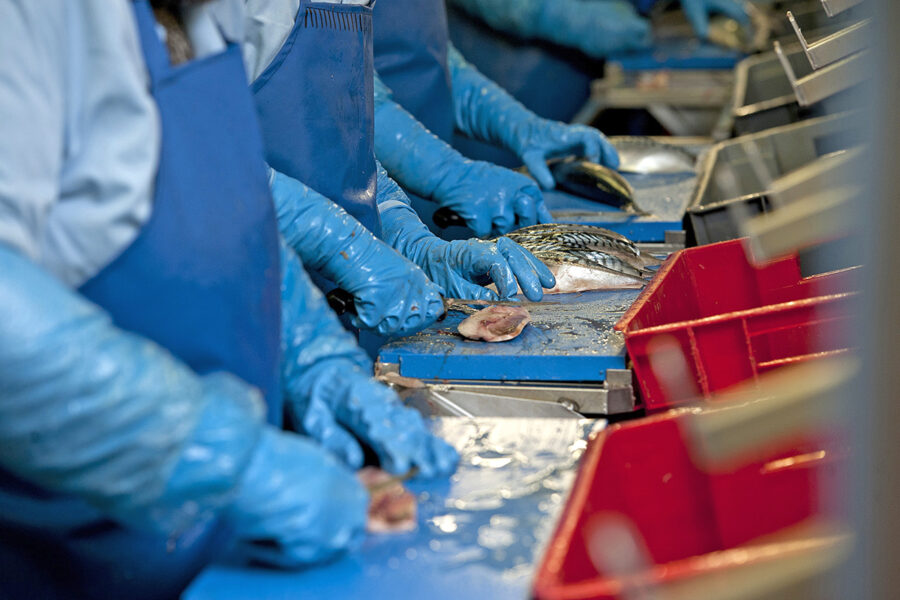Seafood processors are being asked to contribute data on their workforce to help get a clear understanding of labour availability in the UK and the possible impacts on access to labour after leaving the European Union.
In response to industry and government requests, Seafish will collect workforce and labour availability information in a series of straightforward surveys, which will be used to inform government decisions about the seafood processing sector workforce.
In early 2017, a labour nationality survey by Seafish found 66% of UK seafood processing sites employed workers from other EU countries. The same data revealed 42% of the 10,000 employees in the survey were from other EU countries.
The research also revealed specific regions showed wide variations in the proportion of workers employed from outside the UK. For example, in the Grampian region, 70% of the total reported workforce were citizens of other EU countries, whereas in the Humberside region 17% of workers (about 1,000 employees) were from EU countries.
While both these statistics differ from the UK average, they are likely to change in the near future, with multiple businesses expressing concerns about labour availability and the flow of workers into the seafood processing sector slowing in recent months.
The new Seafood Processing Labour Reports will track trends in the number, proportion and ease of recruiting both UK and non-UK workers in the seafood processing sector in the period before and immediately after the UK leaves the EU. These reports will focus on the nationality of permanent, temporary and seasonable workers.
The research will be used to inform government to address labour availability issues throughout the research period and beyond.
The whole workforce review survey will be conducted annually, starting in November 2017, with additional quarterly update questionnaires helping collect data on the ease or difficulty of recruiting, staff turnover and the business impacts of changes in labour availability.
Seafish will also use the information to produce case studies to illustrate the stories from individual businesses, enabling personal experiences with labour-related issues to be voiced. Seafish is calling for all seafood processing businesses interested in contributing to this research to get involved.
Nigel Edwards, technical and CSR director at Icelandic Seachill, said: “We are facing an uncertain future and we must get a comprehensive overview of our workforce to be able to tackle any labour supply issues before they become a big issue.
“I would encourage all processors to be involved in this vital survey so a clear picture of the industry’s workforce can be formed and our concerns can be heard.”
Chief economist at Seafish, Hazel Curtis, said: “We have heard very clearly the concerns expressed by business leaders in the seafood processing sector about increasing difficulties in attracting and retaining workers. They are telling us there has been a notable drop-off in the availability of workers from European countries that had previously been a ready source of willing workers.
“We are aiming to ensure government decisions in the run up to Brexit are well-informed by robust quantitative and qualitative data and analysis, concerning labour and associated business practices throughout the UK seafood processing sector.”
Business manager at the Scottish Seafood Association Jimmy Buchan added: “There is a common belief that the processing sector relies heavily on the EU for its workforce. If that is the case, we need to act to ensure there isn’t a shortfall in workers.
“We hope this survey will be completed by the whole sector so we can understand what challenges we face, where our workers come from and what steps we need to take to ensure our industry is robust and healthy well in to the future.”
In addition to supplying evidence directly to government, evidence from the first annual survey will be supplied to the Migration Advisory Committee as part of their 2017 call for evidence on EEA workers in the UK market. Results will be made available to stakeholders after each survey.
The first survey will begin during November 2017.
Contact: If anyone would like more information on this project, or would like to get involved, they should contact Lewis Cowie, economics researcher at Seafish, by email at: lewis.cowie@seafish.co.uk or by phone on: 0131 524 8631.
Read more news from Fishing News here.








